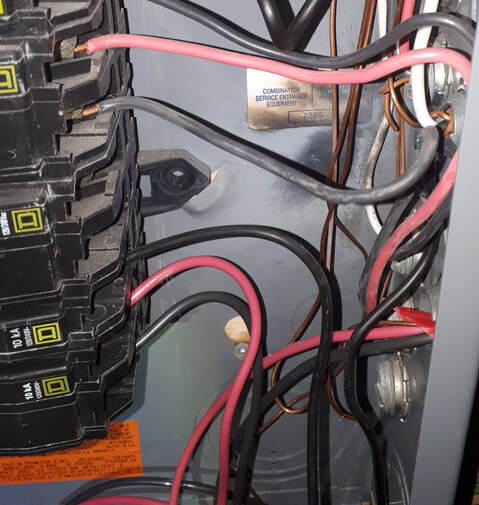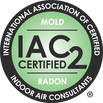Mike's Home Inspector BlogMichael Burfitt |
|
WARNING: Do NOT, under any circumstances attempt to remove or disassemble an electric service panel (even if switched off) as just one small mistake can be fatal! I am a trained and experienced professional and know my safe limits. Shortly after we moved into our house, we hired an electrician to do some upgrades and improvements. Like any curious home inspector, I couldn’t resist peeking at my panel before calling to see what exactly I was dealing with. As expected, I found no major issues that I typically look for such as double taps, aluminum branch wires or mixed neutral/ground bus bars. I couldn’t help but notice, however, the burn mark located on the bottom right of the panel. Simply put, this was almost certainly caused by an electrical arc. You might think that an arc is just a few sparks and a quick sizzle and is no big deal. This is incorrect: while a bigger risk lies in large industrial systems, residential electrical arcs can be very dangerous in many ways:
Heat An arc fault creates high temperatures and have been known to reach 19,000°C (or 35,000°F). That’s four times the temperature of the sun’s surface! This can not only melt steel (and damage the panel) but can easily cause a fire. Pressure Arc faults can create a pressure blast of about 2000 pascals per square inch (PSI). Translation: the corresponding arc blast can not only knock an adult to the ground but can shoot debris and cause trauma to anyone nearby. Sound and Light I know from firsthand experience an electrical arc is LOUD! How loud? The sound can go as high as 140 decibels, which is as loud as a gunshot. It also can create a flash of up to 13,000,000 lux (130 times brighter than direct sunlight) that can cause temporary or permanent vision loss. Luckily these extremes are generally only seen in larger, more industrial electrical setups but that doesn’t change the fact that residential electrical systems are dangerous and not to be messed with. The biggest concern with an arc fault as a homeowner is that it can cause a fire, not only in the main panel but behind the walls. This is one reason why in 1999 the United States followed by Canada in 2002 started requiring Arc Fault Circuit Interrupters (AFCIs). If I haven’t made clear enough, electrical systems look very simple but can hold numerous dangers you may not be aware of, so always refer any electric work to a licensed electrical contractor. |
Archives
July 2024
Categories
All
|
|
Inside Edge Home Inspections Ltd.
Halifax, NS 902-209-9921 [email protected] Proudly Serving the HRM & Central Nova Scotia |


 RSS Feed
RSS Feed

